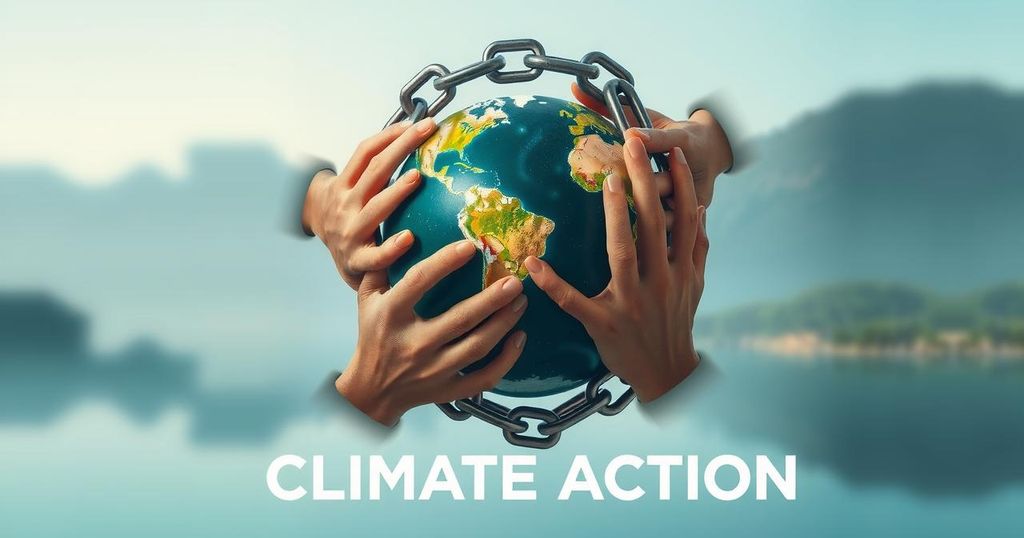Transparency International’s 2024 Corruption Perceptions Index warns that corruption threatens global climate action efforts. Many participating nations scored poorly, undermining initiatives and redirecting funds intended for climate mitigation. Countries like Brazil and Azerbaijan have low scores, while wealthier nations are also seeing declines. The report emphasizes the need for improved governance to ensure effective climate action and support marginalized communities most vulnerable to climate impacts.
On February 11, Transparency International published a report highlighting the risk that corruption poses to global climate action efforts. The organization’s 2024 Corruption Perceptions Index indicates that many countries engaged in climate initiatives, either as hosts of UN climate summits or those vulnerable to climate impacts, received low or declining scores on the index. Corruption hampers effective policy implementation and undermines frameworks designed to ensure accountability.
Maira Martini, chief executive of Transparency International, emphasized the urgent need to eliminate corruption, stating that it threatens to undermine critical climate actions. She noted that corrupt practices could redirect funds meant for combating climate change, inhibiting effective environmental regulations. The index assigns lower scores to nations perceived to have a higher risk of public sector corruption, affecting their ability to lead in climate action effectively.
For instance, Brazil, which is set to host the United Nations COP 30 climate talks in 2025, received a score of 34, the lowest in its history. Similarly, Azerbaijan, the convener of the last summit, scored significantly lower at 22. Conversely, the United Arab Emirates, with a higher score of 68, appointed the head of its state oil firm to lead the COP it hosted in 2023, illustrating the varied levels of corruption globally.
Wealthier nations that traditionally lead climate talks, including Canada (75), New Zealand (83), and the United States (65), also demonstrated declining scores. The report asserts that corruption in these countries poses the most significant threat to international progress on climate initiatives. These nations bear a greater responsibility in achieving ambitious climate targets and facilitating global resilience against climate change effects.
Countries most vulnerable to climate challenges, such as South Sudan (8), Somalia (9), and Venezuela (10), often score low on the corruption index. The report underscores the difficulties marginalized populations face in adapting to climate impacts and pollution, reinforcing the importance of government support.
To mitigate corruption’s effects, Transparency International recommends developing improved metrics and frameworks for climate transparency and accountability. This would enhance fund allocation tracking, ensuring that resources are utilized effectively to combat climate change and protect vulnerable communities.
The report by Transparency International starkly illustrates the interconnection between corruption and climate action, revealing that many nations, especially those most affected by climate change, are hindered by poor governance. The analysis underscores the pressing need for transparency and accountability to safeguard climate goals. Without addressing corrupt practices, efforts to mitigate climate change may be significantly weakened, ultimately impacting global cooperation. This call to action serves as a reminder that the integrity of climate initiatives is crucial for fostering effective responses to global warming.
Original Source: www.straitstimes.com






